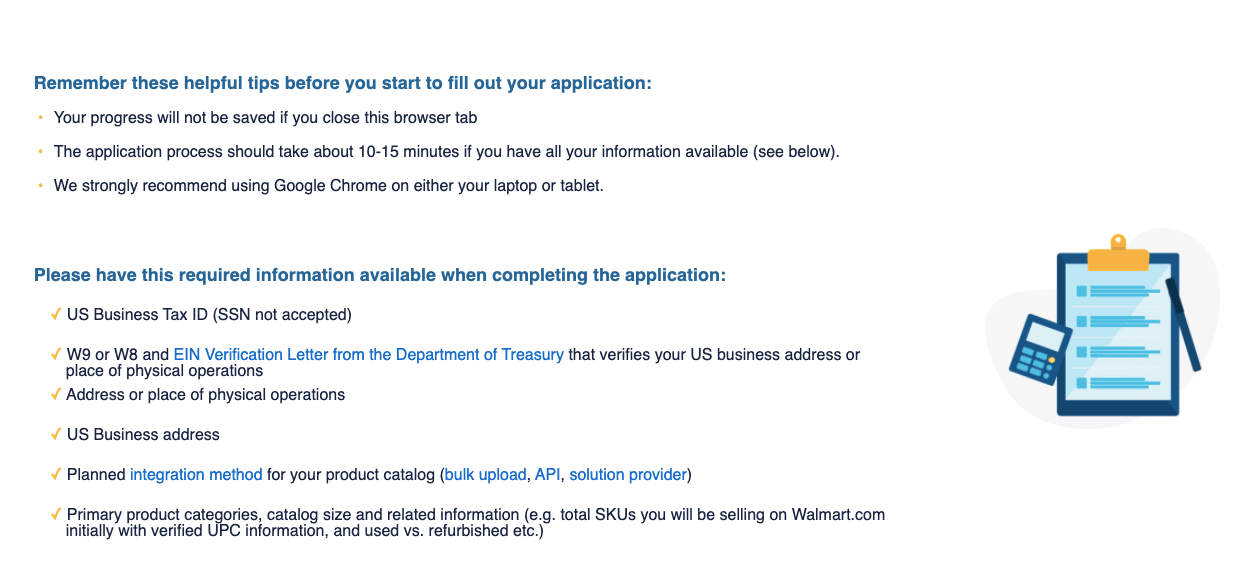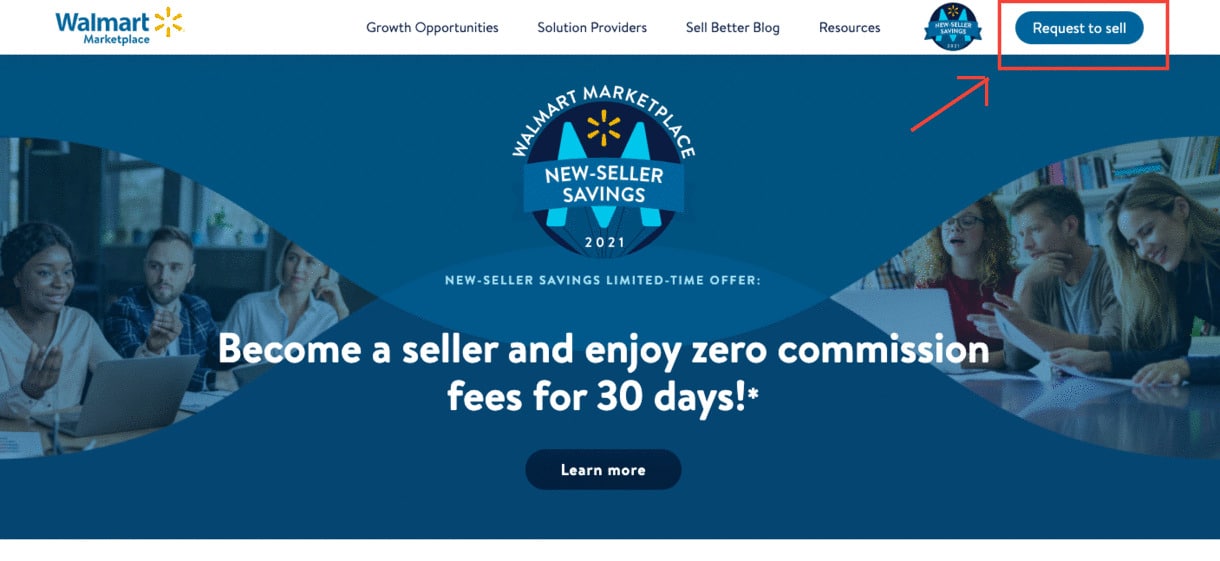
The world’s largest retailer is going beyond the border and now accepts vendors with no United States address or business tax identification to sell on their platform.
If you’ve been following Walmart’s moves recently, you should be aware that it’s gaining momentum in the e-commerce field and is becoming one of Amazon’s top competitors. Pre-pandemic, the two giants were specializing in different areas—Amazon online and Walmart in brick and mortar. However, the latter had to make some drastic changes to keep up with the growing demands of online shopping.
In this article, we’re looking at Walmart’s welcoming of non-US vendors and its other strategies to beat Amazon.
Why Did Walmart Allow Non-US Vendors in Its Marketplace?
Walmart’s decision to remove the requirements of its vendors to be registered in the United States is seen as a move to try and rival Amazon and to tap into manufacturers overseas, particularly China.
We might see more foreign vendors on Walmart soon, and we won’t be surprised if most of them are from China. Chinese sellers already account for almost 60% of the top sellers on Amazon, and with Walmart opening its doors to non-US business owners, there’s a possibility that it might have similar numbers. In 2020, there were more than 50,000 third-party sellers using Walmart.
Before, third-party sellers need to have a US Business Tax ID as well as a US business address to even qualify.

Now that these are no longer necessary, more foreign sellers will be able to list their products in the marketplace and offer more varied and potentially cheaper products to customers. Although it’s fifteen years late compared to Amazon, Walmart is catching up by offering their services to non-American sellers, including:
- Their website
- Advertising services, and
- Fulfillment services
Walmart has always championed US-made products. It even pledged an additional $350 billion investment through 2030 “on items made, grown or assembled in the US.” But if it wants to keep up with Amazon, the company knows it has to expand its horizons.
The Application Process: Walmart vs. Amazon
At this point, it is worth noting that applying as a Walmart third-party seller is not as easy as it is on Amazon. In fact, when the company announced the news, CEO Doug McMillon said that they are opening their US marketplace to “a limited number of international companies who share our commitment to customer trust and safety.”
At the end of the day, sellers still need to make a request to sell on the platform, and it needs to be reviewed and approved.

This process currently takes weeks because the company needs to make sure that they accept only legitimate business owners in their platform. If approved, Walmart will then give the seller an invitation to sell.
So unlike Amazon, Walmart has an invitation-only policy. So although it is now open to non-US sellers, it’s still not as easy as listing a product on Amazon. This may be good news for Uncle Jeff, but once enough foreign sellers are in the Walmart mix, buyers may opt for it since the application process is more rigorous, which may result in fewer disappointing deliveries and laughable unboxings.
However, this is not to say that Walmart has a perfect track record in terms of customer satisfaction.
What Will Chinese Sellers Need to Get Into Walmart's Marketplace?
Walmart's decision to open its doors to foreign sellers has us looking at China. Chinese sellers already make up a significant amount of all Amazon sellers. Their strong manufacturing industry gives them an advantage over others, especially considering that many non-Chinese private labelers import from China.
But with a more rigorous application process compared to Amazon, what do Chinese sellers need to get into Walmart's marketplace?
They will have to meet the following requirements:
- A valid Chinese business license
- More than a year of operating experience selling on North American marketplaces
- Good store ratings
A Closer Look at Walmart’s Numbers vs. Amazon’s
While Amazon has grown bigger in 2020, Walmart still beats it in terms of revenue and profits.
| Revenues ($ Mil.) | Revenues (%Change) | Profits ($ Mil.) | |
|---|---|---|---|
| Walmart | 523,960 | 1.9 | 14,880 |
| Amazon | 280,520 | 20.5 | 11,590 |
Source: World’s Largest Companies 2020 by Global Finance
And although Amazon is hiring more people this year with the addition of more planes and vans to its delivery system, Walmart is still the world’s largest private employer with around 2.2 million employees globally. As of December 2020, Amazon ranks 5th in that category.
Now, let’s look at where these companies stand in terms of logistics.
| Walmart | Amazon |
|---|---|
Source: Walmart |
Walmart also partnered with Deliverr that helps provide its customers with fulfillment services. It is integrated into the Walmart Free 2-Day Shipping program, and those who avail it have seen increases in sales. It’s very attractive since it uses a fixed fulfillment rate.
Amazon, on the other hand, will add 100,000 electric delivery vans in 2021, which allows it to keep its throne as the better logistics provider. However, there are other tricks up Walmart’s sleeves.
Walmart’s Other Strategies to Beat Amazon
Walmart Fulfillment Services
In February 2020, Walmart launched the Walmart Fulfillment Services (WFS), which, like Amazon’s FBA, allows third-party sellers to pay for storing, packing, and shipping products. WFS guarantees a two-day delivery period and a simple cost structure that includes the following:
- A fixed monthly storage fee
- A fulfillment price based on shipping weight alone
Local Fulfillment Centers
Since fewer people were visiting their physical stores, Walmart thought of an ingenious way to utilize them—turn them into fulfillment centers.
The so-called Local Fulfillment Center (LFC) is described as “compact, modular warehouse built within, or added to, a store.” And just like Amazon’s warehouses, LFCs are run by robots.
Walmart has partnered with Alert Innovation to create Alphabot, which works by “automatically bringing items from storage to associates who will consolidate the items in the order.”
Walmart Express Delivery
“Our door to yours in two hours or less.”
This is how Walmart describes its Express Delivery service. From groceries to electronics, buyers can have their items delivered in just hours for the same prices in-store. Launched in April 2020, this is a direct threat to Amazon Prime Now, which was launched six years earlier.
The Express Delivery service will cost $10 on top of the existing delivery charge. However, if you’re a member of the company’s Delivery Unlimited subscription service, you will simply pay a $10 fee per Express Delivery. Since it’s fairly new, customers have to check if it’s available in their area.
There used to be a $35 minimum order requirement, but Walmart recently announced that it is removing this. Membership to Walmart+ is also cheaper at $98 per year compared to Amazon Prime’s $119.
Conclusion
It will take a lot more work for Walmart to ultimately dethrone Amazon as the king of e-commerce. However, over the last year, it hasn’t slowed down in working towards this goal.
It’s too early to say how these companies will fare in the coming years especially with advances in vaccine distribution all around the world. But it’s not hard to see that Walmart is a worthy Amazon competitor.




Is China the only offshore country currently allowed to sell on Walmart ?
Thanks.
Hello There,
I would like to start selling on the walmart marketplace, but i do not know exactly what we would need in order to be eligible to get an approval to sell on walmart.
I just know that, we would need to have a company, but i am based (my residence) in turkey.
Can i create a company in turkey, so that the company is based in turkey, in order to be accepted for walmart or is it really mandatory to create the company in the US?
I would really appreciate, if you could may help me with this!
Regards,
Zeki Aydinli.